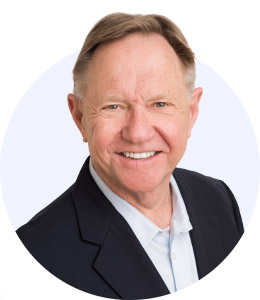How does one replenish themselves and others? A common definition of the word replenish is “to make full again.” This is often used in terms of supplying what is lacking, used up, etc. I have heard the message that one should stay hydrated. To hydrate is to replenish oneself. That is physical replenishment, and it’s important…but mental and emotional replenishment are also important.
Much of my current work is focused on helping organizations create cultures of replenishment. I reference the work of the late Stephen Covey. In The 7 Habits of Highly Effective People, he talks about the emotional bank account. As with a bank account, there are deposits and withdrawals in our relationships, both at work and in our personal life. Not all withdrawals are negative. Some can be used for good purposes. However, it is best to make sure there are more deposits than withdrawals.
My experience is that in most organizations, it is common to have more withdrawals than deposits. If a customer says they would like to talk with you, is your first thought, Here comes a compliment? If an employee wants time with you, is your first thought, They want to express appreciation for my leadership? If you’re an elected official and a constituent connects with you, is it most likely to express gratitude? In all three cases, the answer is probably no. It’s not that positive interactions do not take place; it’s that they take place less often than negative ones.
Because we may not receive the number of deposits we need to create a healthy emotional bank account, it is important to replenish ourselves. One method that seems to work is creating a daily gratitude list. Another is to surround yourself with people who help you to stay grateful.
At work, you might start each meeting by sharing something you are grateful for. Have all the others do the same. Another way to replenish is to take time individually or in a group to share why you chose the role you are in. This brings people back to their why. Then move to asking, “Why do you work here?” Having facilitated hundreds of these sessions, the comments I hear are so heartwarming: When my father was sick, my coworkers helped me hold it together. When I went through a divorce, my coworkers were my support system. My coworkers threw a baby shower for me. My coworkers are like family. People leave such sessions feeling reconnected to why they are doing what they are doing and far more appreciative of where they work.
A few tips:
- Start each day by listing what you are grateful for. If you feel moved to do so, create a group that does this each day.
- Find ways to infuse gratitude into meetings. Have each person share something they are grateful for. Take time to share why you do what you do, and why you choose to work where you do.
- Don’t wait for people to come to you with positive feedback. Go to them. When I was president of a hospital and an area got a new piece of equipment, I would not wait for staff to contact me. I would go to them and ask how the new equipment was working out. Ninety-nine percent of the time, the feedback was positive. I would then add, “I’m so happy the board approved the purchase.” It is a way to generate lots of wins.
- Share your own story. It makes a difference. Recently I was fortunate to spend the day with Methodist Hospitals in Northwest Indiana. At the end of the day, CEO Matt Doyle made an emotional speech. He covered how proud he is of the team and the work they do to serve all, and how healthcare has been part of him forever as he is the son of a nurse. He then said he is so grateful he gets to work with this team and do such worthwhile work. The group appreciated his words.
Thank you for taking the time to read this column, comment on it on social media, recommend it to others, and make it part of your life. I am grateful I get to do this.







